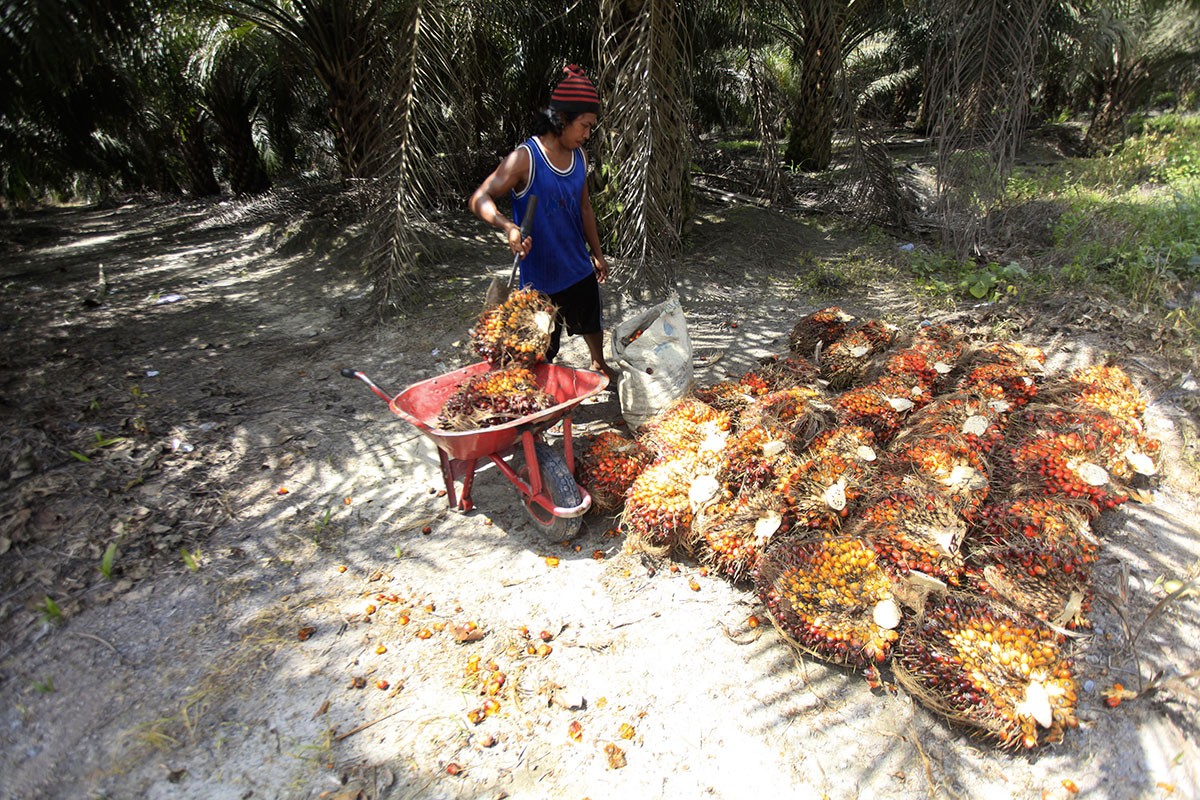Palm oil association, universities team up to prepare skilled workers
Change Size
 A worker moves bunches of oil palm fruit at a plantation area in Pangkalan Bun, Central Kalimantan. (JP/Dhoni Setiawan)
A worker moves bunches of oil palm fruit at a plantation area in Pangkalan Bun, Central Kalimantan. (JP/Dhoni Setiawan)
T
he Indonesian Palm Oil Producers Association (Gapki) has signed a memorandum of understanding (MoU) with the Indonesian Rectors Forum (FRI) on a link-and-match program to prepare skilled workers.
Both parties also agreed to boost research and development related to the palm oil industry, Muryanto Amin of Gapki’s education advocacy department said after the MoU signing in Jakarta on Thursday.
The agreement was expected to pave the way for students from universities under the FRI to work as interns in various companies that hold Gapki membership so that they could be well prepared before moving into work in the sector, he added.
(Read also: Oil palm production falls only slightly despite severe drought)
“This year, we also want to persuade several universities, especially ones specializing in agricultural majors or located in palm oil producing regions, to collaborate with us in conducting specific research about the palm oil industry,” said Muryanto.
The projected research areas include the utilization of peatland, preserving nature in oil palm plantation areas and technological innovations.
“We also want to disseminate to young generations that the palm oil industry is actually not damaging to the environment, as long as you work properly,” Muryanto added.
Gapki membership currently incorporates companies working on 644 oil palm plantations across the country.
Gapki has predicted that the country’s palm oil production could rise by 16 percent to 35 million tons in 2017, after the impacts of the crop-damaging El Niño weather pattern disappeared at the end of last year. (bbn)









